Weekly Writing Summary For The Week Ending 10/02/2025
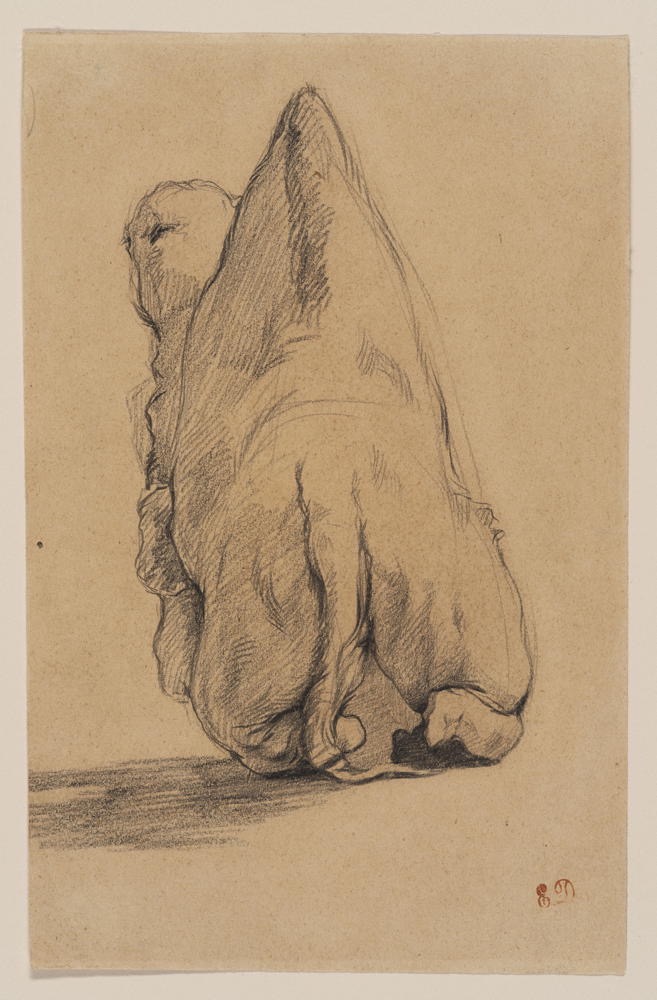
Ferdinand-Victor-Eugène Delacroix: Camel (c. 1827-1828)
Different Than Taxable Income
This second week into this still-new Decency Series, I sensed myself settling into a fresh context. Few experiences better reward my choice to write than this sensation of settling into another perspective. It might seem as though I'm transcribing here what I already understand, but my persistent readers already understand that I rarely know what I'm going to write before it appears before me. I set an intention, then wait for the universe, The Gods, or chance to show me how they intend to manifest it. I am inescapably involved, but only as a medium. Maybe tolerating this experience exemplifies what it means to author. My movements in this world inevitably tend to become part of my stories, not through clever scheming, but through something infinitely more confounding. I am employed in precisely this way, not by a benevolent employer who pays me cash for my trouble, but by synchronicity, who reliably forgets to pay me with anything other than insights and experience. Curiously, I feel a more dedicated and reliable employee now then I was back when a paycheck reliably appeared at the end of every other work week. I feel infinitely more productive now than I ever did then, though I earn something quite different than taxable income.
——
Weekly Writing Summary
Situationalism
“Perhaps I should be indicting myself.”
This Decency Story amounts to a soliloquy, a noisy meditation on the subject of Decency deployment. When might it be best to exhibit and when not? Is Decency ever not the right and proper response?
This Decency Story examines whether decency should be applied only in certain situations or universally, acknowledging the significant ambiguity surrounding its appropriate use. I question whether everyone seems worthy of receiving or capable of delivering decency, and whether extending it to the wrong person could even prove to be harmful. I also struggle with moral guidance, especially in competitive or business contexts where exceptions to decency are often glorified. I reflect on how fear and my desire to remain inoffensive lead to public invisibility, making openly decent behavior seem risky. Observing a cultural shift toward cruelty, I express deep concern that fundamental decency has become increasingly rare, perhaps because people consider it too risky to practice. Ultimately, the piece questions if anyone can communicate unconditional decency and whether withholding it out of fear or self-protection leads to its further disappearance.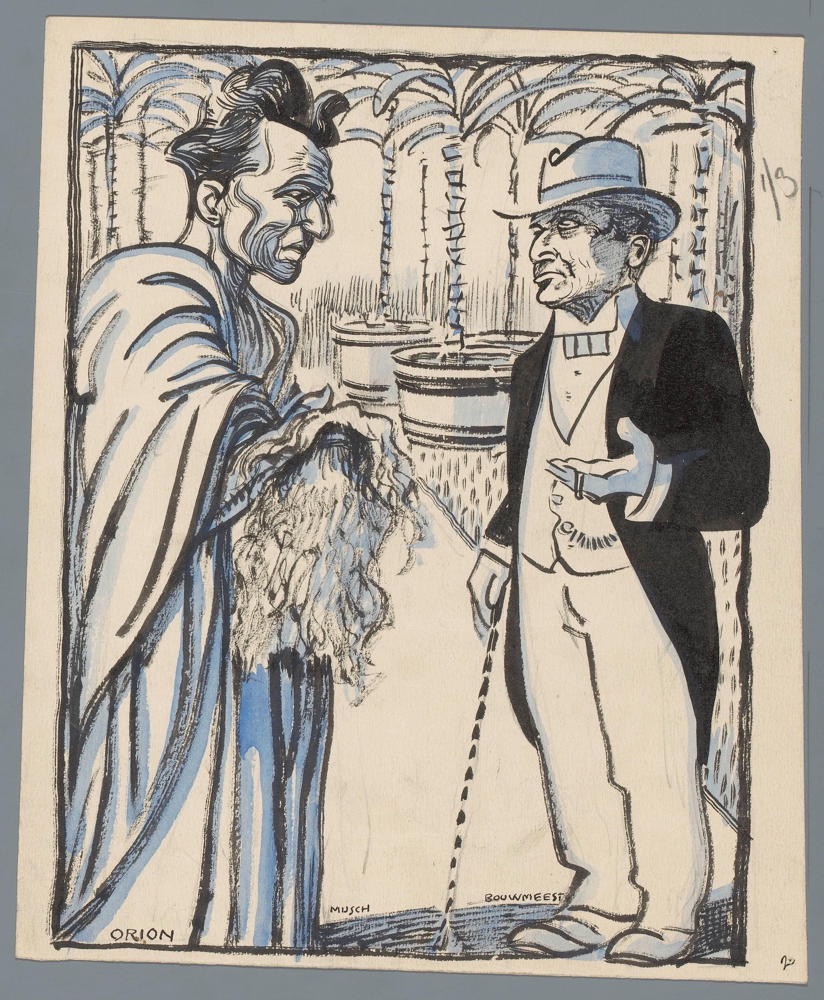
Patricq Kroon: Musch and Bouwmeester (1900 - 1924) — The actors Jan Musch and (Louis?) Builder in conversation with each other. Design for a cartoon in the newspaper.
——
DecencyDemanding
“…those of us daily struggling to live decent lives in these extraordinary times.”
This Decency Story seems to be demanding something of me, something I might not be capable of producing. This might be the chief dilemma facing everyone attempting to live a Decent life.
This Decency Story reflects on my constant struggle to understand what decency requires in this time of divisive and dishonest leadership. I acknowledge the provocations and falsehoods that seem designed to elicit indecent responses, and I express frustration with the erosion of shared values and the crushing oppression under current leadership. Drawing on my upbringing, I contrast my values with those of the incumbent leader. I conclude that decency requires each person to continually question their actions and motives, especially when the answers are unclear, because abandoning this questioning can lead to unconscious and potentially compromising behavior.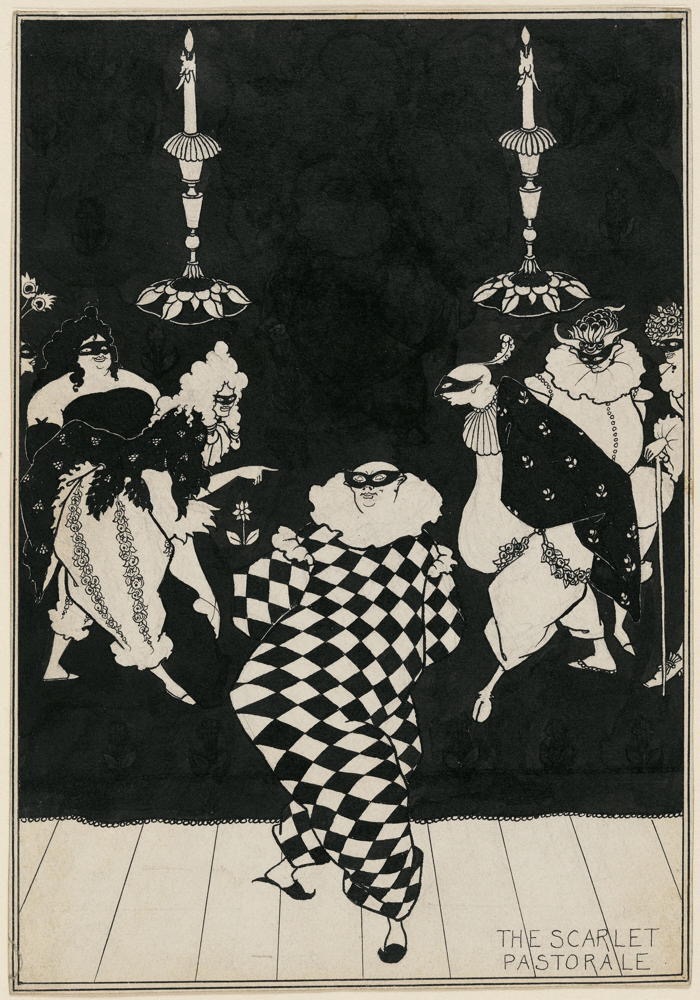
Aubrey Vincent Beardsley: The Scarlet Pastorale (1894)
——
Persistence
“Will we persist with our damning decency even then?”
This Decency Story finds me visiting Portland, Oregon, while ICE melts down to nothing in the persistent mist.
This Decency Story explores the recent protests in Portland, Oregon, emphasizing the contrast between the performative aggression of ICE agents and the calm persistence of protesters. I depict ICE agents as ineffectual, hiding behind masks and acting out fear-driven intimidation that fails to deter or subdue the citizens, who meet violence with non-resistance and a stubbornly reassuring adherence to decency. I argue that harsh tactics only undermine the enforcers, while decency proves inexhaustible and remarkably resistant to corruption. Portland’s misty atmosphere symbolizes the citizens’ steady resilience and unique history, suggesting that persistence and decency prevail over attempts at control or violence.
Thomas Cowperthwait Eakins: Miss Alice Kurtz (1903)
——
Deceit
“Not even that frenzied moment will last forever.”
This Decency Story finds Deceit failing to successfully seduce me.
This Decency Story explores the struggle between Decency and Deceit, focusing on Decency’s commitment to honesty and integrity, even when Deceit attempts to manipulate and seeks only to undermine Decency’s success. While Deceit might win short-term advantages and take pride in getting away with transgressions, it ultimately accumulates consequences that overwhelm it. Decency, though it may appear to lose repeatedly, plays a longer game—focusing on principles, long-term legacy, and refusing to adopt deceptive tactics. This story highlights the discipline required to remain decent amid the temptation of easy, yet unsustainable, deception. Ultimately, decency outlasts deceit, as sustaining value comes from integrity, not superficial success.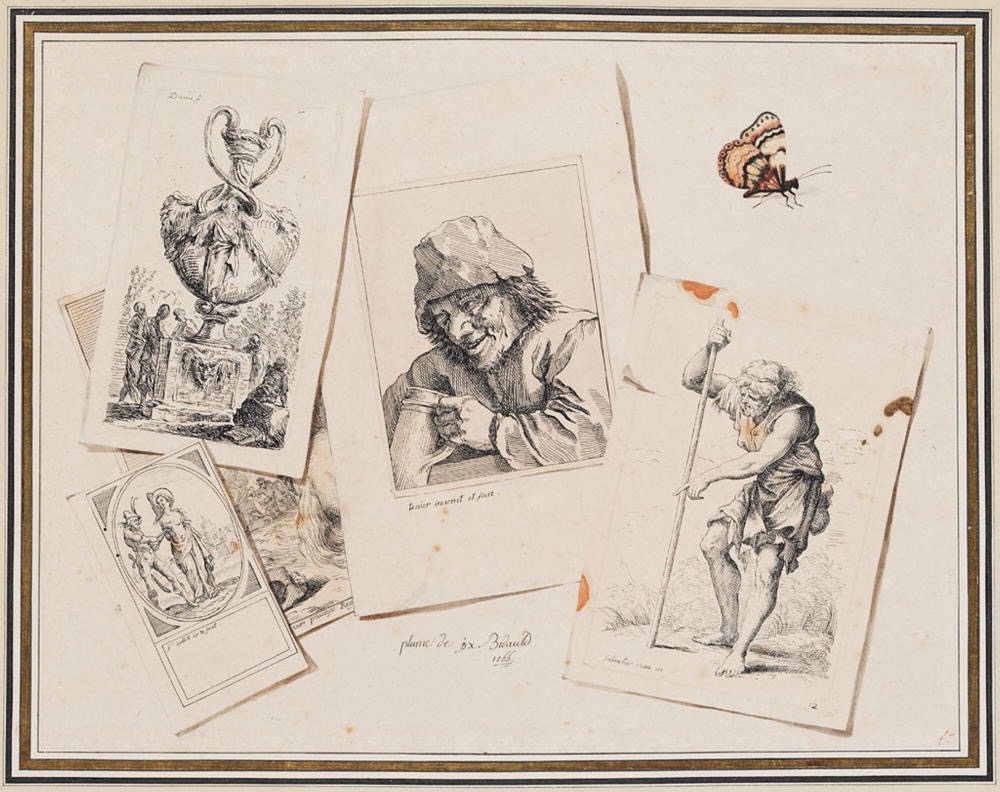
Jean-Pierre-Xavier Bidauld: Trompe l’Oeil with Prints and a Butterfly (1766)
——
Crickets
“The crickets said more than words in response.”
This Decency Story finds me uncharacteristically admiring admirals and generals who embody Decency and Discretion as a matter of honor and tradition.
This Decency Story highlights the contrast between our society’s focus on provocation and the disciplined restraint our military leaders exhibit. Describing an incident where generals and admirals do not react to political speeches meant to incite, the story illustrates how decency appears measured, unprovoked, and avoids overt displays. These leaders, shaped by tradition and hard-earned caution, embody a professionalism resistant to manipulation, viewing ethics such as war-waryness and peacekeeping as paramount. I present their non-reaction as wisdom in the face of cultural and political inanity, underscoring that authentic authority lies in reflection and self-control.
Unknown Artist-East Asia, Japan: Decorative Sculpture in the Form of a Grasshopper or Cricket (Late Edo period, 1615-1868, 19th century)
——
Themocracy
“We deserve to live in a land of the Decent and the home of the Thems!”
This Decency Story finds me embracing Themocracy. Since The War On Decency seems to characterize Democrats as Them-ocrats, I self-identify as a Them and recognize our beleaguered Democracy as, gratefully, a Themocracy.
This Decency Story argues that the current political environment misuses the idea of ‘decency’ to divide Americans into exclusive groups of ‘Us’ and ‘Them,’ increasingly portraying Decency itself as something held only by a chosen few, and used to vilify everyone else. I criticize leaders who act by personal whim, warning that this undermines both societal decency and effective governance. I point out that democracy was created to empower those historically excluded from power, not the elites, and that a healthy democracy (‘Themocracy’) emphasizes shared opportunity, inclusion, and care rather than privilege and dominion by a select few.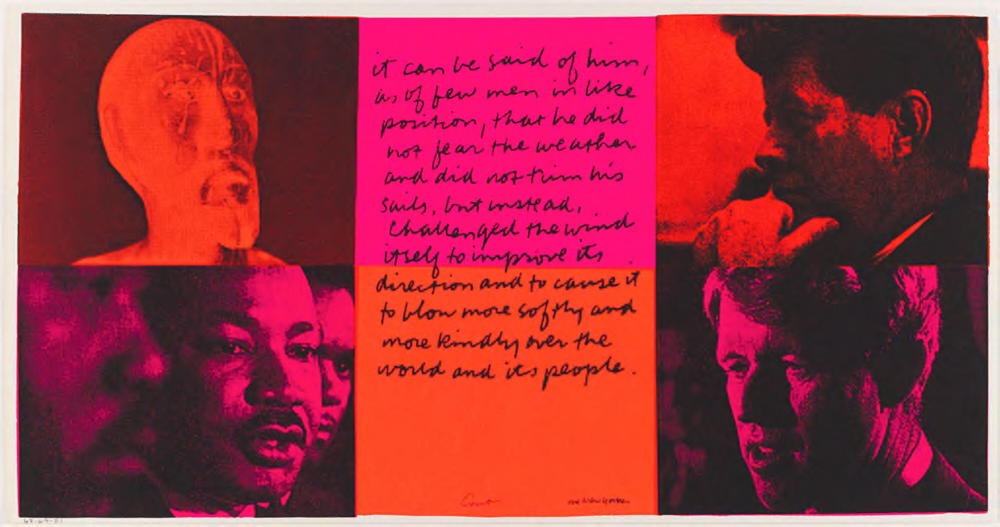
Corita Kent (Sister Mary Corita): it can be said of them (1969) —- Inscriptions and Marks: Signed: l.c.: Corita — (not assigned): Printed text reads: it can be said of him, as of few men in like position, that he did not fear the weather and did not trim his sails, but instead, challenged the wind itself to improve its direction and to cause it to blow more softly and more kindly over the world and its people. the New Yorker inscription: l.l., in graphite: 68-69-81
—
“Perhaps I should be indicting myself.” That’s how I began this writing week. I went on to explore this fresh Decency perspective without much more in the way of directive. Decency, held as an intention, might be its own best reinforcement. I considered that Decency might be Situational, but that we might best live as if it were unconditional. I reminded myself that Decency has always been demanding, and that I, or anybody who ignores its imperative, suffer. I reported that I consider Decency defined by its tenacious Persistence. I reported on what happens when Deceit encounters Decency. I gleefully transcribed what happens when tyranny tries to deceive Decency. I noted the silence with which our defenders greet a concerted attempt to compromise our values. I ended this writing week declaring myself a dedicated Them. Thank you for following along!
©2025 by David A. Schmaltz - all rights reserved


